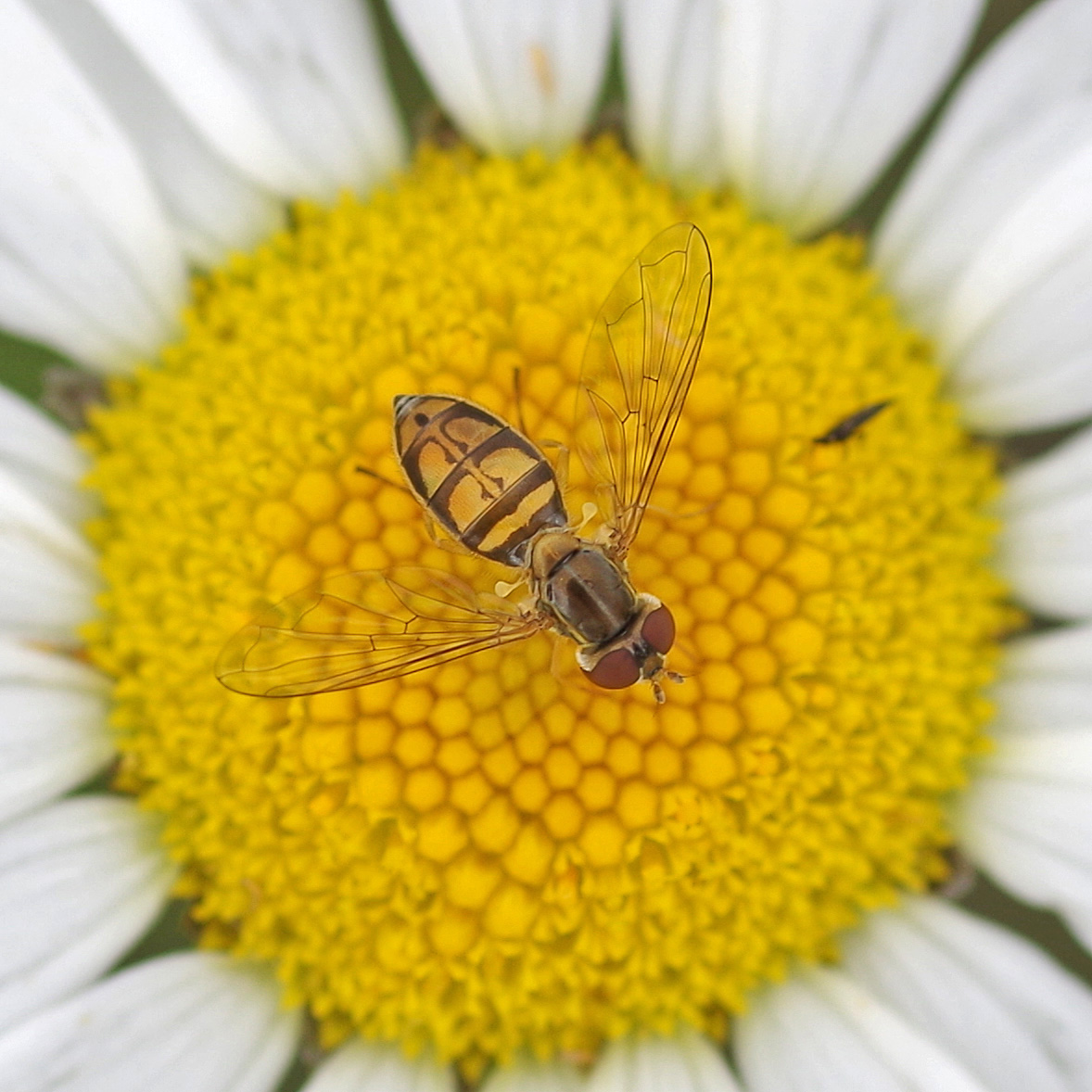
by Kate Redmond
Closed for June II Pollinators
Howdy, BugFans,
We’re getting a jump on National Pollinator Week (June 17 to 23) with a few articles about pollinators, which, if you like to eat or watch birds or photograph flowers or (add your favorites here ___________) are pretty indispensable.
What does it take to be a successful pollinator? The ability to deliver pollen to multiple flowers in a short time span and the ability to transport pollen, either by general hairiness or by special pollen carrying structures. Ants, with their smooth exteriors, impeccable grooming, and pedestrian habits, are all over flowers, but they are inefficient pollinators.
Flies are all over flowers, too – are they on the list of important pollinators? Check this: https://www.smithsonianmag.com/science-nature/how-much-do-flies-help-pollination-180977177/?utm_source=smithsoniandaily&utm_medium=email&utm_campaign=20210308-daily-responsive&spMailingID=44581828&spUserID=ODg4Mzc3MzY0MTUyS0&spJobID=1960663514&spReportId=MTk2MDY2MzUxNAS2
How do pollinators find flowers? Flowers have developed a variety of lures to attract insects, like color, UV reflections, patterns on petals that act as nectar guides, electrostatic charges, and flower size and shape. Specialized flowers “train” their specialized visitors, with which they have evolved over millennia. Scent is important, too, especially for nocturnal visitors. What happens if an insect can’t smell its usual blossoms? https://www.smithsonianmag.com/smart-news/air-pollution-makes-flowers-smell-less-appealing-to-pollinators-study-suggests-180983766/?utm_source=smithsoniandaily&utm_medium=email&utm_campaign=editorial&spMailingID=49430515&spUserID=ODg4Mzc3MzY0MTUyS0&spJobID=2641244472&spReportId=MjY0MTI0NDQ3MgS2

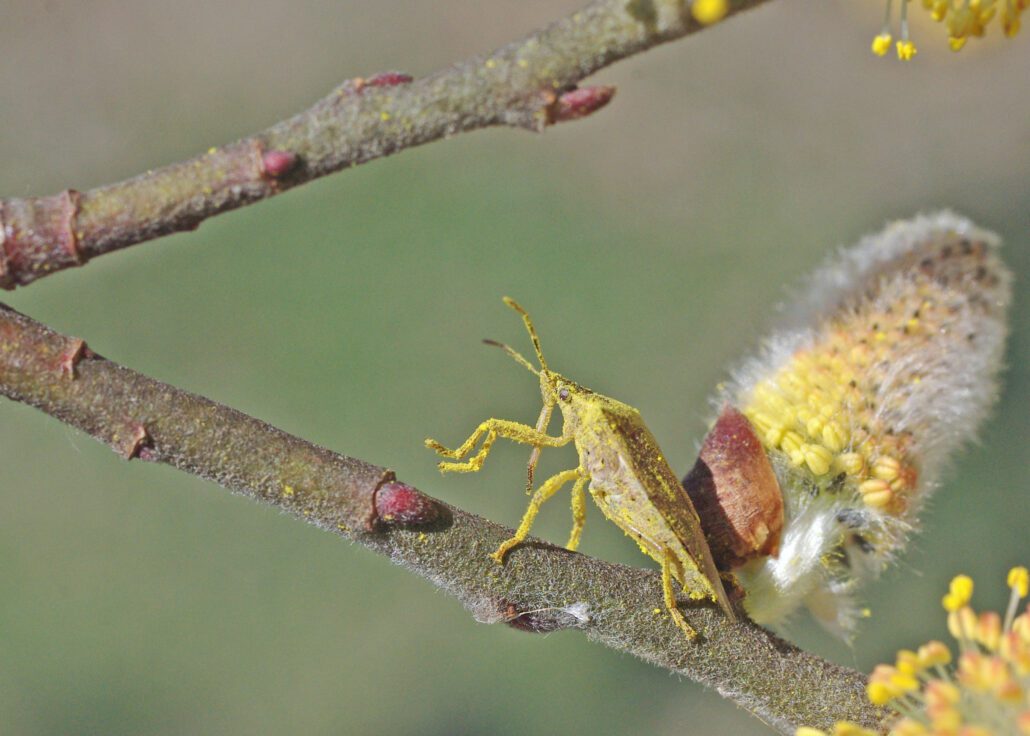
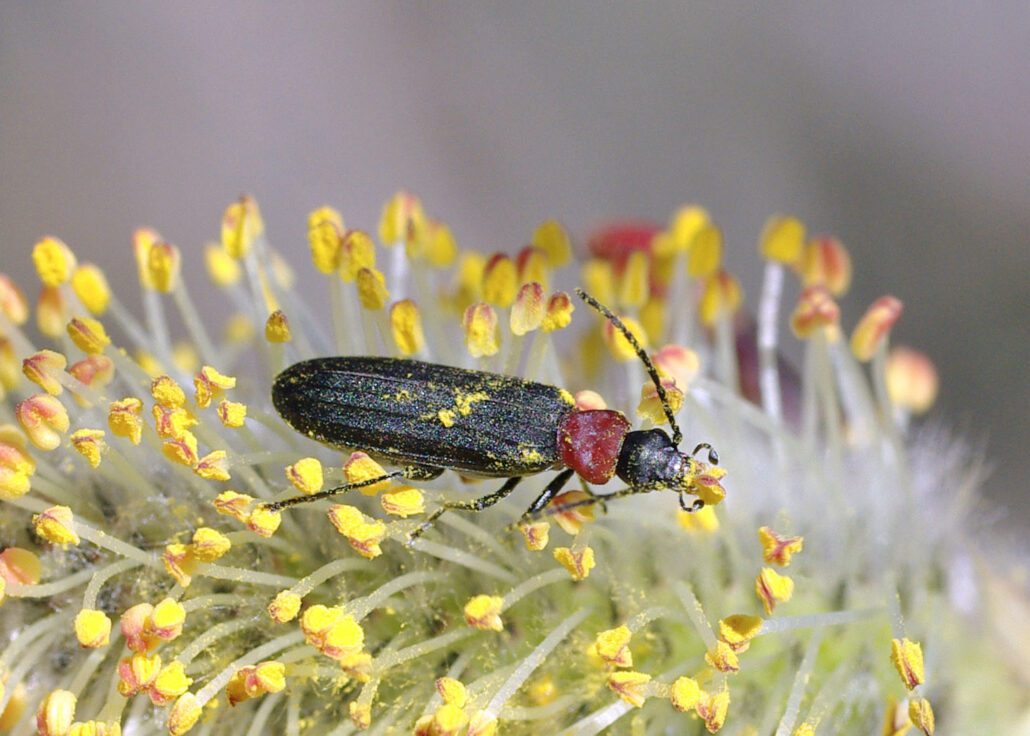
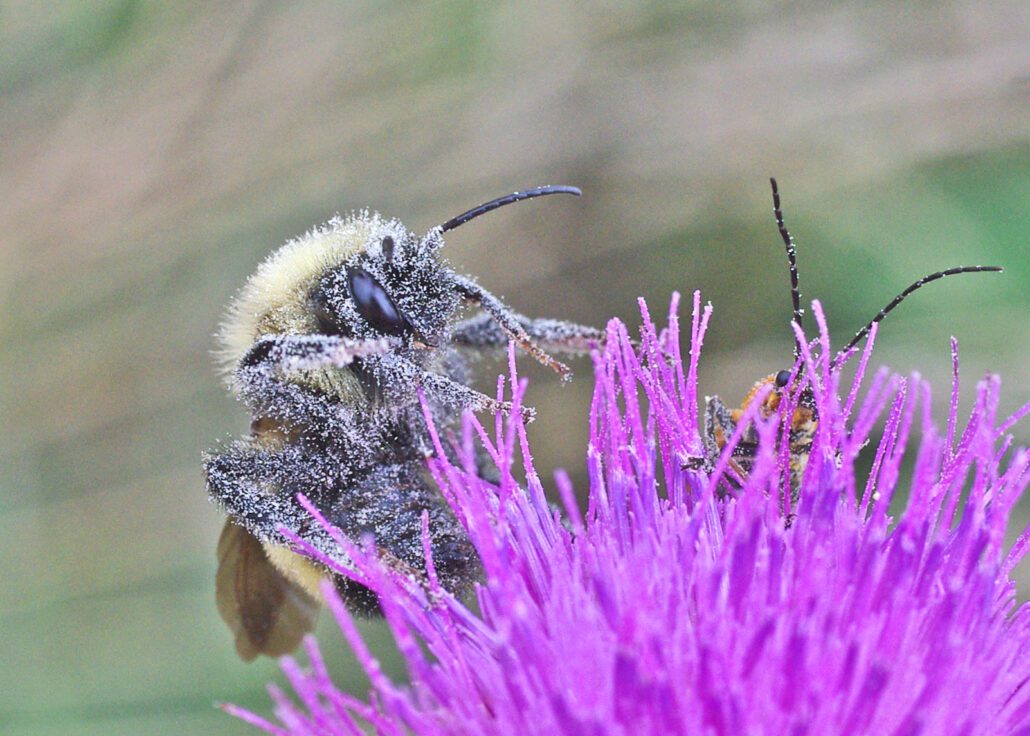
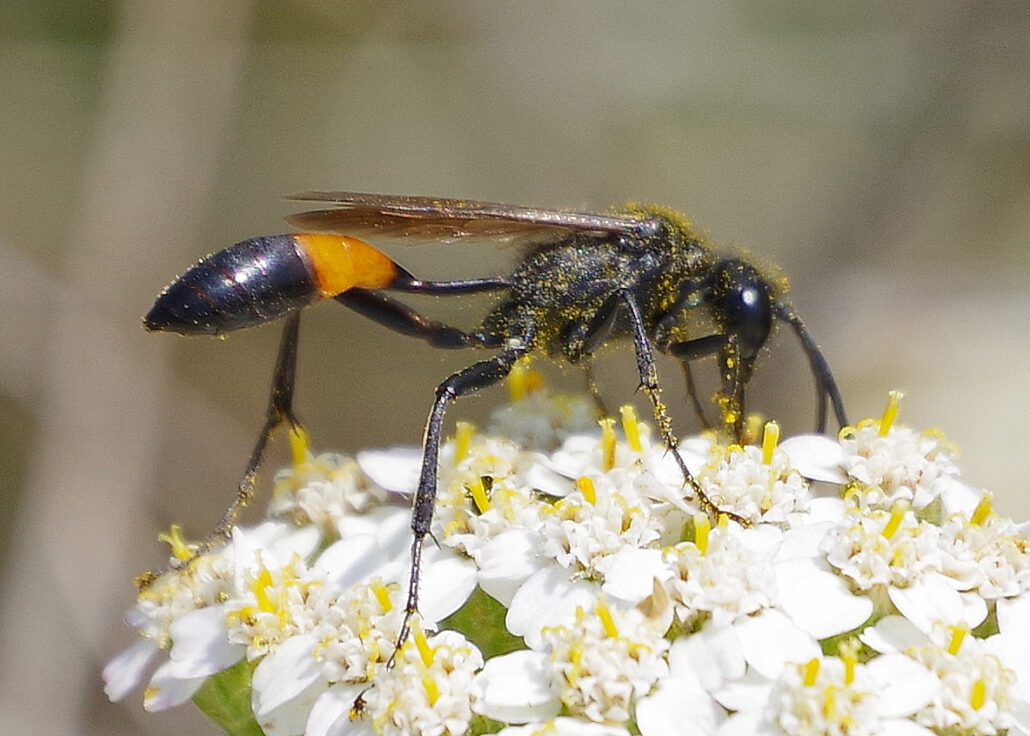

A lot has been written in the past decade about the crash of honey bee colonies. Honey bees are, after all, responsible for pollinating about one-third of the foods we eat, accounting for about $15 billion in crop values annually (and they make honey and beeswax, too). But, honeybees are an alien bee that was imported to pollinate alien crops, and we have many species of native bees. Do honey bees disrupt native relationships – https://www.nature.com/articles/s41598-019-41271-5?fbclid=IwAR3gFJuCvy1t3GEPCRGDW1nDzOGLjB-G0vLFiYHJtfU7TgVLTUnShMa5NJ0
Go outside – look at pollinators.
Kate Redmond, The BugLady
Bug of the Week archives:
http://uwm.edu/field-station/category/bug-of-the-week/
